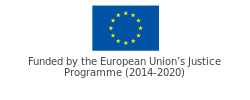The earliest stages of criminal procedures frequently determine the overall fairness of proceedings. During the pre-trial interrogation of vulnerable suspects or accused persons key evidence is often obtained and the admissibility of this evidence can determine the ultimate outcome of the case.
There is a growing recognition of the need for vulnerable suspects to be accorded special safeguards at the interrogation stage to ensure their fair treatment and effective participation, as expressed by the Commission Recommendation C(2013) 8178/2 (S3§13).
Although there is a slow move in the direction of increased audiovisual recording of the interrogation of vulnerable suspects or accused persons, the picture across Europe is patchy. A number of states resist the introduction of recording for a range of reasons, including cost, technical challenges and ensuring privacy.
The project ‘ProCam - Procedural Rights Observed by the Camera: Audiovisual Recordings of Interrogations in the EU’, supported by the Justice Programme of the European Union, aims to research the connection between the audiovisual recording of any questioning of vulnerable persons and the enforcement of their rights, as advised in the Commission Recommendation.
The project will research the role of audio-visual recording in securing the rights granted in Directive 2013/48, alongside facilitating EU-wide identification of good practices of recording interrogation of vulnerable persons, and the understanding of related concerns.
The project remit covers analysing international standards, researching practices in the 28 EU Member States, exchanging experiences between national stakeholders, comparing Member State laws and practices, proposing reform to reinforce good practices, and disseminating project findings at the European Parliament.
Click here to go to the project's web section on the IJJO website.
The main objective of this project is to fill this gap in knowledge and trust and, in particular, to:
(A) Examine the link between audiovisual recording and improved procedural rights protection for vulnerable suspects and accused persons protected under EU Law.
(B) Identify and share examples of good practice via dissemination of research materials.
(C) Understand why some states are reluctant to introduce audiovisual recording and, where possible, to provide constructive, evidence-based responses while providing state officials with personal experience of other states where recording of interrogations is widespread.
(D) Analyse the law and practice of all 28 EU Member States on audiovisual recording of interrogations with special focus on the interrogation of children, being one of the most vulnerable groups. Separate and more detailed analysis of the 5 Member States represented by the Partners will be carried out.
The project will seek to answer the following questions:
(A) Are interrogations of vulnerable suspects audio-visually recorded across the EU?
(B) Who are considered vulnerable suspects needing such recording?
(C) Are such recordings being made available to the suspect or accused person in a timely fashion (e.g. to allow them to challenge the detention)?
(D) What barriers exist to the universal use of audio-visually recording to vulnerable suspects and how might those barriers be removed or reduced?
(E) Has recorded testimony been successfully used to dispel concerns about whether suspects or accused persons understand their rights?
(F) Has recorded testimony been successfully used to dispel concerns more generally about the interview and to avoid duplication of questioning of vulnerable suspects?
(G) Is future EU action needed on this issue and what might that action look like?
The main result of the project is the personal experience of domestic stakeholders gained through the experience exchange meeting. Through this, national stakeholders will have more knowledge on the practical consequences of recorded interrogations. The unique knowledge base on audiovisual recording of police interrogations of vulnerable persons will provide arguments to support policy changes. In particular:
(A) Information on international standards and academic research from across the EU;
(B) An up-to-date overview of the law and practice across the EU;
(C) In-depth understanding of the law and practice across 5 Member States, data on the extent of use of audiovisual recording of the interrogation of vulnerable persons in practice, costs, and the attitude of key stakeholders; and
(D) A unique opportunity for stakeholders of the participating countries to share their experience regarding audio-visually recorded interrogation of vulnerable persons. This method enables officials who do not use audiovisual recording to build trust towards this process.
